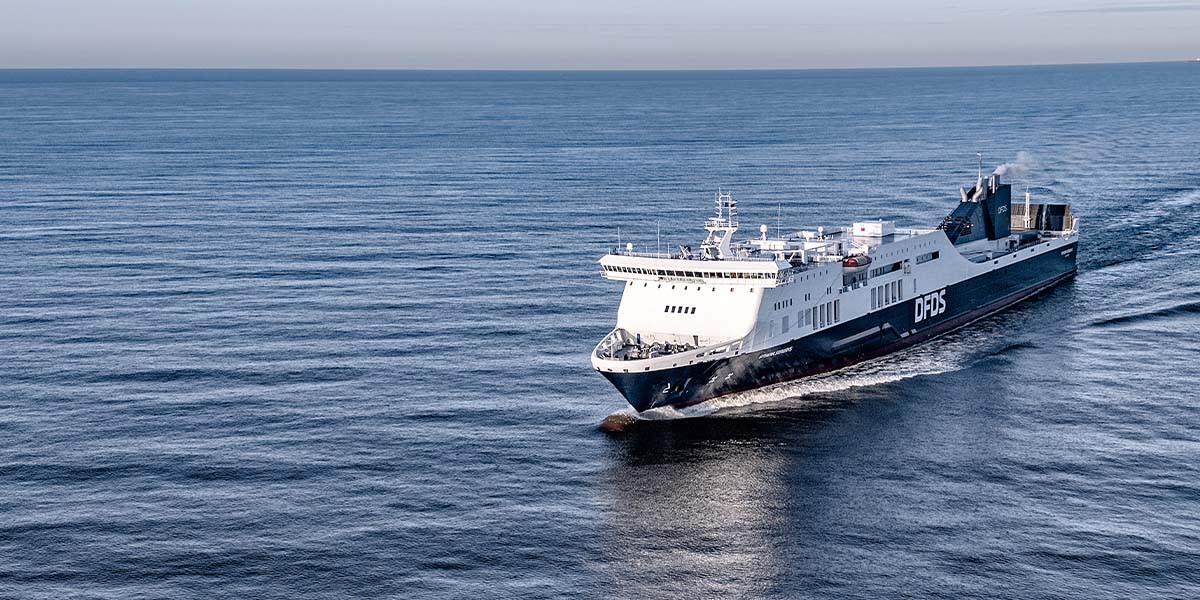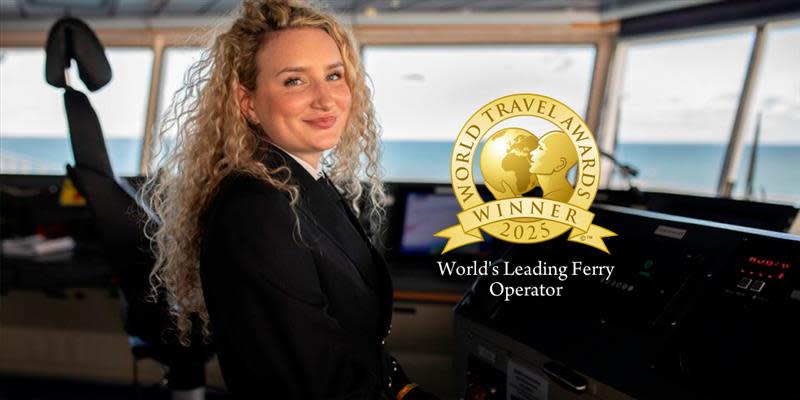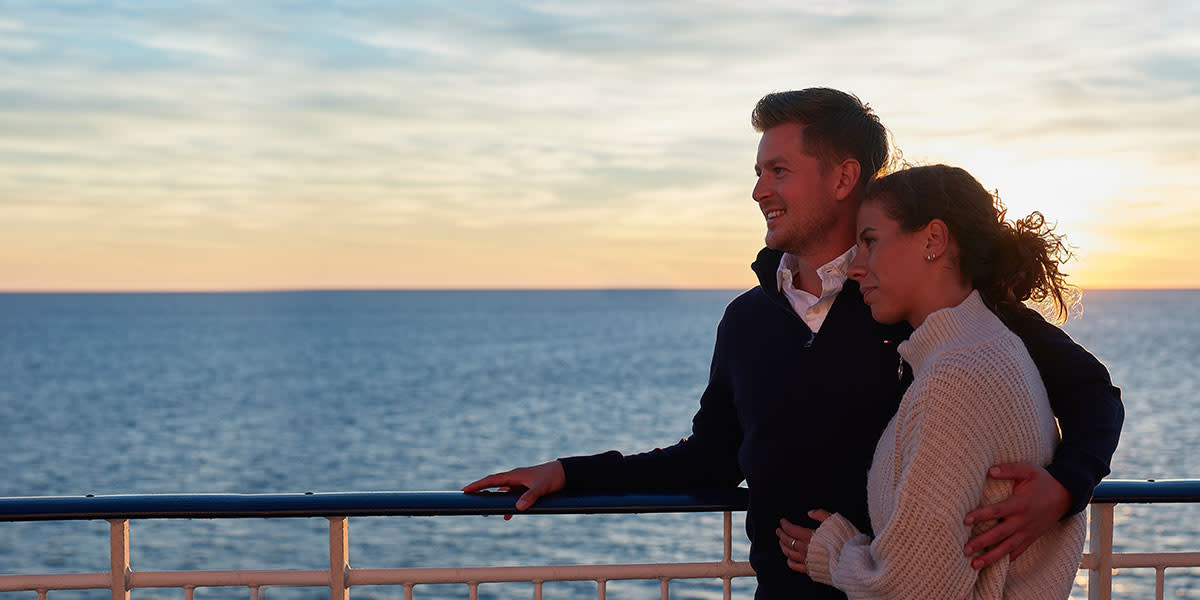
Ship's godmothers
Why is the christening of a ship a woman's job?
In the past, men were always responsible for sending ships out to sea - captains, priests, representatives of the government, members of royal families took part in solemn ceremonies, and women on board were even considered to bring misfortune. However, now it is usually the woman who is given the most important role - she is declared the godmother of the ship. When did this change happen, and what does it mean to be the godmother of a ship?
"It goes without saying that the ceremony of naming or christening a ship nowadays has only a symbolic meaning. This is aimed at perpetuating and recording an important event for the company. Like the birth of a child to a person, a new ship brings joy and hope to a company, but also the cares of maintenance. So, what can be a naming or christening without a godmother", says Vaidas Klumbys, head of public relations and communication for the Baltic countries of the leading European ferry operator DFDS, which will christen the new ship in August.
When did godmothers appear?
The christening of ships goes back to the times of the first civilizations. The Babylonians, Egyptians, Greeks, and Romans blessed their ships so that sailors would be safe during dangerous voyages. For some peoples, wine and a festive ceremony were enough, but others tried to win the favor of the gods for the ship and its sailors by sacrificing a bull, a sheep or, in the Viking culture, even a captive.
Fortunately, the cruel traditions have been done away with, and nowadays the usual "sacrifice" is a bottle of sparkling wine that his godmother smashes into the ship. But the first godmothers of the ship appeared quite recently.
In fact, in the Middle Ages, women on board were even considered a disaster and were forbidden to sail on merchant or military ships. Sailors were afraid that a woman on a ship would anger the sea gods, so there were even cases when a woman was found on a ship and thrown overboard.
Over time, the attitude towards women in shipping changed and even feminine names prevailed, thus further emphasizing the tradition that came from Antiquity to consider ships as a feminine entity. Romualdas Adomavičius, the deputy director of the Lithuanian Maritime Museum - the chief custodian of the funds, says that this testified to the attachment of male sailors to their ship, and partly to the superstition that the ship is like a mother who cares for and protects her children - the crew - during sea storms.
18th century In France, both the godfather and the godmother were already appointed at ship christenings, during the ceremony they both pronounced the name of the ship, and the man gave flowers to the woman.
An important foundation for the new tradition was laid in 1846, when a woman was declared the first "patron" of a ship in America - Miss Lavinia Fanning Watson, the daughter of a wealthy Philadelphia family. From that time on, women were increasingly chosen as "guardians" - usually they became members of royal families or the wives and daughters of captains.
With the onset of the cruise ship boom, their christening became an important part of marketing. The ceremonies became a real show, and actresses, singers, queens, representatives of royal families were invited as godmothers - from Audrey Hepburn to Queen Elizabeth II. The godmother who "owns" the most ships is considered to be the Italian actress Sophia Lauren.
D. Grybauskaitė has also become the godmother of the Lithuanian ship
"In Lithuania, when after the restoration of independence, ships were built for the "Lithuanian Sea Fleet", the christening of each of them was an event of national significance - after all, we built ships for our fleet in Klaipėda. Now maybe we hear less about the christening of ships, but in fact this tradition is still followed, although the nature of christenings is changing somewhat", says R. Adamavičius, an expert in the history of shipping.
For example, for a long time it was customary for the christening ceremony to take place when the ship was first launched. However, now the main ship manufacturers are South Koreans and Chinese, so the customers often choose to christen the ship when it arrives at the serviced port.
In addition, earlier even in Klaipėda, crowds of people gathered for baptisms, it was a significant event for the whole city and its visitors. However, due to security requirements at the ports, only invited guests can participate in such ceremonies.
Although the nature of the christening ceremony is changing somewhat, the first voyages of ships important to Lithuania always attract a lot of attention, and the traditional elements - the godmother and the breaking of the bottle - remain.
For example, when in 2021 Western Baltic Shipyard built the new Smiltynė transfer ferry "Klaipėda", Prime Minister Ingrida Šimonytė, Minister of Transport Marius Skuodis also participated in the solemn ceremony, and Olga Žalienė, the long-time head of the Lithuanian Maritime Museum, was invited to become the ship's godmother.
R. Adamavičius reminds us of the most important ship for Lithuania at the moment - the liquefied natural gas storage "Independence". President Dalia Grybauskaitė became the "godmother" of the ship, who even went to the South Korean port of Ulsan for the naming ceremony. As is obligatory during the christening of a ship, all project partners cut a symbolic ribbon, and a bottle of champagne was thrown aboard the ship to attract good luck.
The tradition of the baptismal font is also observed on military ships - all of them in Lithuania have their own patron. The historian says that they are usually chosen from the region after which the ship is named. For example, Šilutė district mayor Daiva Žebelienė became the godmother of "Skalvio", Rima Rakauskienė became the deputy mayor of Alytus city municipality for "Dzūko", Birutė Varzienė became the vice-mayor of Biržai district municipality for "Aukštaičio".
Godmother - as for a child, so for a ship
V. Klumbys says that godmothers for DFDS ships are chosen very responsibly. "Think about what criteria people use to choose godparents for their children?" Some of them also apply when choosing a ship's godmother. Here, special attention is paid to the candidate's personality and reputation, as well as the work she has done. The godmother's relationship with the company is also taken into account: the wife of an important client, partner or owner of some other company can be invited as godmother," says the representative of the ferry operator.
For example, Rima Stankevič - the wife of a former captain, diplomat, director of the Lithuanian Maritime University, Ieva Masiulienė - the wife of the former Minister of Transport, scientist, archaeologist, became the godmothers of DFDS ships.
According to R. Adamavičius, the main duty of the godmother is simply to participate in the solemn ceremony. Whether connections are maintained later or whether the godmother acquires additional rights or responsibilities depends on each ship and godmother. "After all, even when we baptize children, what kind of relationship they develop with their godparents is a completely individual matter," says the representative of the Lithuanian Maritime Museum.
Our routes

Proudly named the World’s Leading Ferry Operator
We did it! We retained our titles as both Europe’s Leading Ferry Operator and the World’s Leading Ferry Operator again in 2025.
We were also once again recognised as having the best website in our industry – scooping both the European and World awards in 2025.
A heartfelt thank you to everyone who voted, and to our passengers, colleagues and partners who contribute to our continued success – we couldn’t do it without you all.



